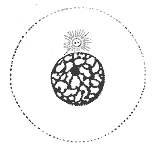Mitosis is cell
division in the cell cycle, that ends with producing two identical
cells-daughter cells. The 1st stage of cell division is interphase. Interphase is the phase of the cell cycle in which a typical cell spends most of it's life, the 'daily living' or metabolic phase of the cell, in which the cell obtains nutrients and metabolizes them, grows, reads it's DNA, and conducts other "normal" cell functions... It is divided into 3 phases; G1(gap phase 1), S(synthesis) and G2(gap
phase 2).
 |
| The ilustration of interphase |
- G2-separates the newly replicated genome and marks the
end of interphase.
 |
| The cell cycle |
Mitosis-events that
occur in 4 phases of it:
- Prophase-the
spindle microtubules grow and extend from each pole to the
equator, chromosomes super coil and become short and bulky and the
nuclear envelope breaks down.
- Metaphase-the
chromatids move to the equator and the spindle microtubules from each pole
attach to each centromere on opposite sides.
- Anaphase-the
spindle microtubules pull the sister chromatids apart splitting the
centromeres. This splits the sister chromatids into chromosomes. Each
identical chromosome is pulled to opposite poles.
- Telophase-the
spindle microtubules break down and the chromosomes uncoil and so are no
longer individually visible. Also the nuclear membrane reforms. The
cell then divides by cytokinesis to form two daughter cells with identical
genetic nuclei.
 |
| Interphase+4 phases of mitosis |
Sources:
- http://ibguides.com/biology/notes/cell-division
- https://en.wikipedia.org/wiki/Interphase



No comments:
Post a Comment